Year in, year out, weeds can be a very big challenge to your yards. Bearing in mind that most gardeners, if not all, are always proud of their gardens, they will always look for any means to eradicate weeds completely.
Diesel fuel is a very effective weed killer however, its toxicity to both humans and pets should be taken into consideration before applying. While diesel fuel is very effective at killing live plants, it will not kill weed seeds.
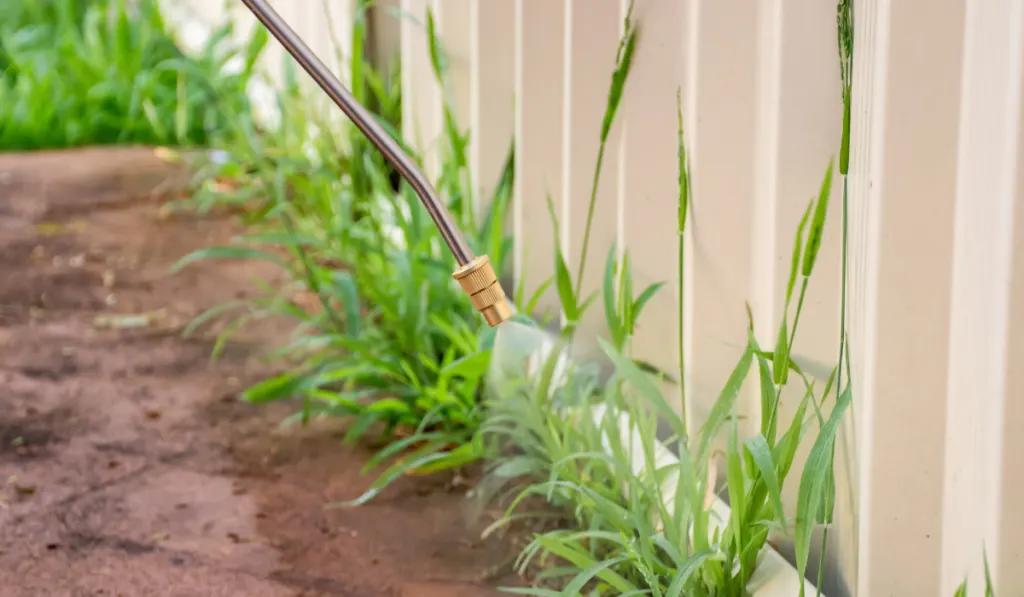
Many people take pride in their yards and gardens and look for ways to kill weeds and unwanted grass. Weeds can be a challenge each year.
Table of Contents
How Much Diesel Do You Use to Kill Weeds?
Approximately two gallons depending on the size of your yard. if well sprayed with no leakages, one gallon is enough.
How Long Does It Take?
Diesel fuel takes roughly 48 hours to successfully destroy weeds after they are sprayed.
Although you will be able to notice early results as the plants start dying in a few hours, the diesel will remain in contact with the plants for at least 48 hours.
Can You Mix It With Herbicides Like Roundup?
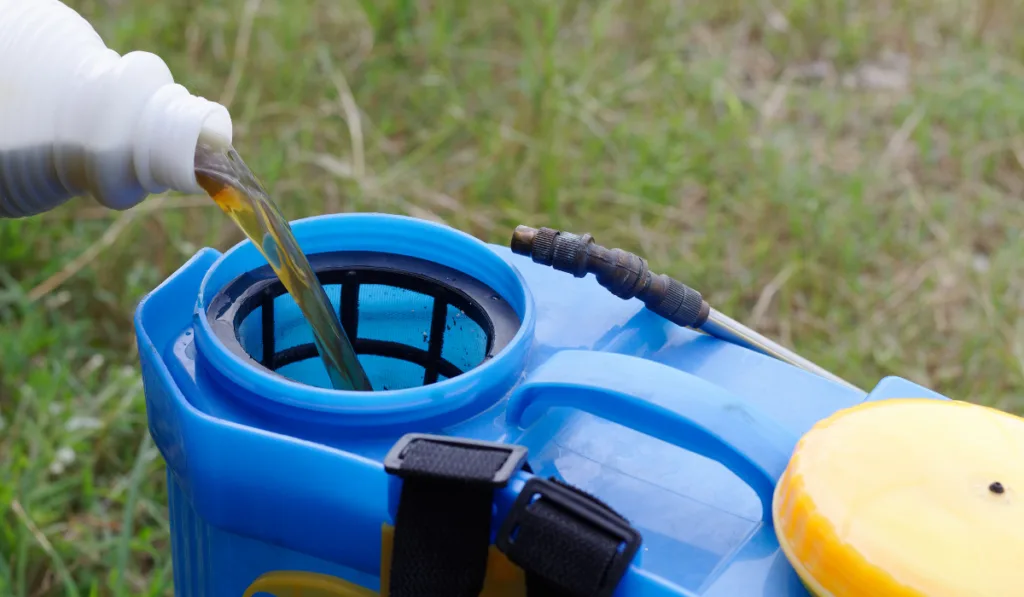
According to Homesteading Today, mixing a small amount of roundup with diesel gives a good additive called a surficant. They recommend using one gallon for every 100 gallons of spray.
Diesel is more toxic to the plants and weeds than roundup so the benefits of mixing them is debatable.
How to Add Diesel Fuel to Your Yard
Weeds can be a great nuisance to your plants because they will compete for nutrients, water, and even sunlight. Diesel fuel can be used to kill weeds in your garden.
The following steps are involved in the use of diesel fuel to successfully kill weeds.
Step 1
Get diesel fuel from the nearest filling station that has a diesel pump. Get two or three gallons of diesel depending on the size of the yard. You do not need much.
Alternatively, if you have a diesel driven vehicle, you can obtain some fuel from your motor.
Step 2
Using a plastic spray bottle, fill it with the diesel fuel. Do the mixing away from your yard. This is because in case of an accidental spillage, the fuel will not kill your useful plants.
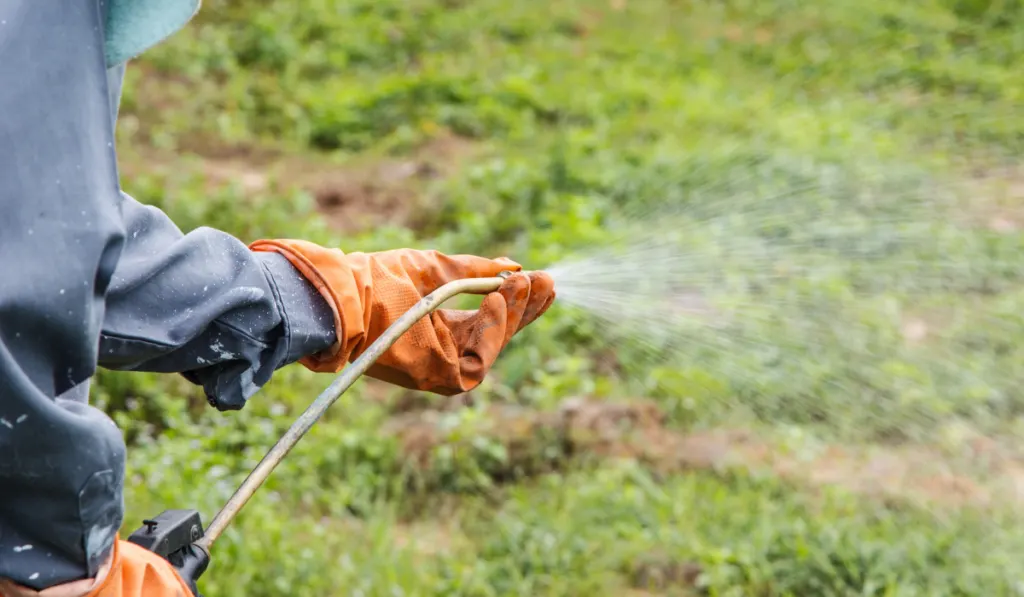
Step 3
Fasten the top of the spray bottle on and walk to your yard and assess the area with weeds and unwanted grass for spraying.
Step 4
Bend down or get on your knees before spraying. This is because the closer you are to the ground, the less the fuel used and you also have a clear control of what grass to kill and what not to kill.
Spraying while standing will unintentionally kill plants that you did not want to kill.
Step 5
Ensure that the nozzle is open. You can set to either jet steam or spray. Having less spray will be easier to control the direction of the diesel fuel.
Step 6
Spray both the grass and the roots with the diesel fuel. Do not spray too much. Spray a considerable amount just to wet the grasses and they will die.
Will It Harm Other Plants?
Diesel fuel is very toxic to plants even at very low concentrations. However, the level of toxicity varies from one plant species to another.
Some certain grass species such as the creeping bent can survive in low concentrations of diesel. The rough meadow grass species are intolerant to diesel oil contamination.
Legumes and herbs are not affected by low concentrations of the fuel. However, at higher concentrations, they perish.
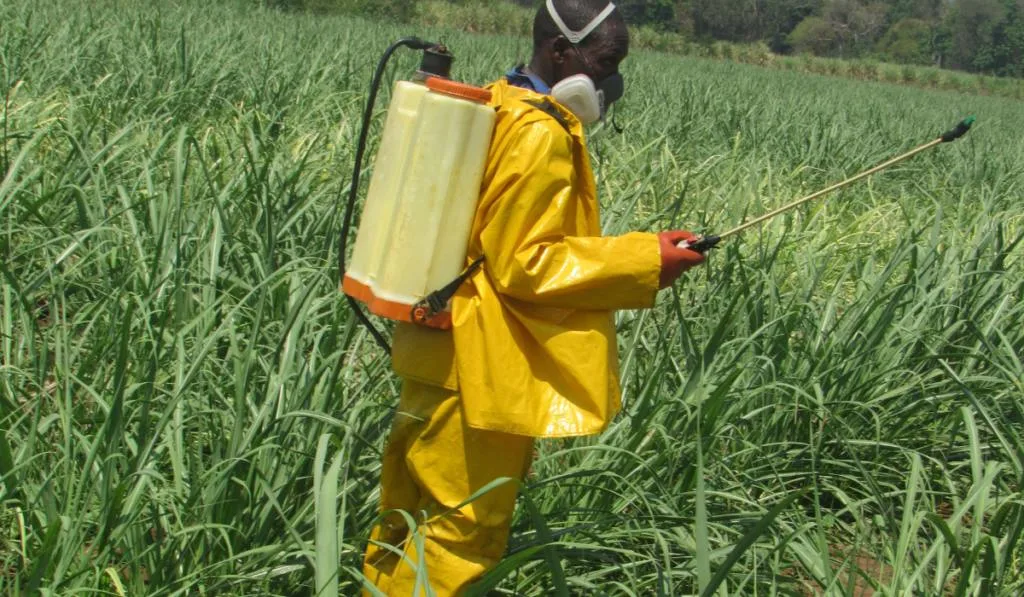
Safety Precautions for Human and Pets
Pets
The main toxic elements in diesel are hydrocarbons.
Diesel fuel is absorbed quickly from the stomach and the skin. This causes irritation, redness and inflammation on the skin and in the stomach lining.
If inhaled, diesel fuel causes irritation to the breathing system tract.
The common effects caused by ingestion of diesel are: burning of the mouth, throat, esophagus and stomach. This burning sensation may cause vomiting. When they vomit, some of the fuel might be inhaled into the breathing tract.
Some animals may develop neurological symptoms such as seizures, coma or even death. When the animal vomits some diesel in the vomit can be inhaled into the breathing system hence may cause pneumonia.
If you think your pet has been exposed to diesel fuel, contact your veterinarian for advice immediately.
For this reason, inducing vomiting at home is not recommended. Closely monitor any animal that vomits on its own and has difficulty in breathing. If the situation worsens, it is advisable to contact your veterinarian.
Some pets may develop chronic neurological signs such as seizures, coma and even death. There could be a possibility that some hydrocarbons are absorbed in the breathing tract and can cause lung failure.

Signs and Symptoms to Observe in Your Pets
- Drooling
- Shaking the head
- Pawing at mouth
- Coughing, gagging
- Incoordination
- Muscle tremors
- Staggering
- Difficulty breathing
- Diesel smell
- Red and irritated skin
- Cyanosis
Treatment
Call your veterinarian immediately you spot any of these signs. Do not try to treat the pet on your own. There is no home cure for the above signs. Do not induce vomiting.
Humans
Exposure to diesel fuel causes nose and eyes irritation, changes the functioning of the lungs, respiratory tract, nausea, fatigue and sometimes headaches.
In addition to that, chronic exposure causes severe coughing, sputum, lung failure, inflammation in respiratory tracts, asthma and other complications related to the pulmonary system.
Diesel is also one of the major causes of chronic allergies. Its particles at as adjuvants to allergens hence increase the sensitization reaction.
Treatment
One good thing is that diesel poisoning is never accidental and cases are rare. If inhaled, seek medical attention fast to avoid risking contraction of related diseases. Avoid home remedies such as inducing vomiting.
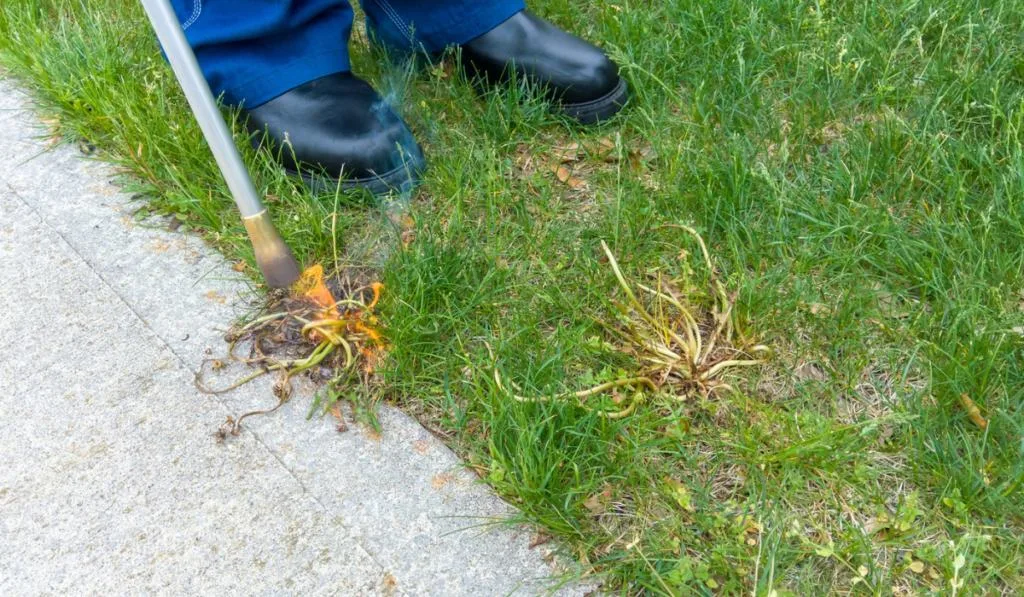
A Propane Weed Torch
A propane weed torch has a thin outlet that releases flame that is essential in chemical-free weeding technics. It has a valve that can be adjusted to enable you set the amount of flame you want.
It is a very essential tool when it comes to killing weeds without use of any chemical methods or herbicides. These torches produce a very hot flame that is fueled by a tank containing propane gas and the tissues of the weed plants are exposed to the high heat levels.
The invention of this weed torch was of great advantage in order to reduce soil disturbances during uprooting of weeds and without requiring the farmer to bend.
When it comes to organic production, a propane weed torch is harmless and does not cause contamination to ground water.
Reasons Why a Propane Weed Torch Is Better Than Diesel for Killing Weeds
The use of this tool has pros over mechanical and chemical weed control in both conventional and organic farming.
Advantages of Using a Propane Weed Torch
- There are no chemical residues on the plants, in soil, in water, and in the atmosphere.
- This method reduces the reintroduction of weeds to the yard after tilling and also reduces the chances of soil erosion.
- It is not time-consuming as it reduces the need for using hands in weeding and/or uprooting.
- When used correctly, kills the weed and it’s seeds.
- Can be used on wet soil.
Disadvantages of Using a Propane Weed Torch
- There is a significant fire danger if the weed torch is used improperly.
- A propane weed torch kills all weeds but, does not prevent seeds from growing new ones.
- There is a risk to yourself of being burned if the equipment is not used properly or malfunctions in any way.
All in all, the propane weed torch is a much better alternative to using diesel fuel to kill weeds.
Seven Natural Weed Killer Alternatives
1. Newspaper

Using newspapers prevents oxygen and sunlight from reaching the soil. A piece of newspaper blocks sunlight and oxygen from reaching the soil. They suppress any weeds present and prevent others from growing.
Arrange the newspapers in sheet layers, wet them to get in contact with soil and cover with mulch, about three inches.
Add more newspaper layers if weeds continue growing. This will produce sheets of mulch and newspaper that will eventually decompose provide nutrients for the soil.
It doesn’t matter here whether you use black and white newspapers or color, the dyes in most newspapers are made from soy ink in a majority of cases.
If you have a concern though, choose an alternate weed barrier for gardens that are growing food.
2. Old Shower Curtains

Used shower curtains are great for preventing weeds from growing in your yard. They work much like any other fabric or plastic weed barrier.
Before using, make sure they are thoroughly rinsed of any shampoo or soap products that could be detrimental to the plants. Don’t worry, there is no need to dry them.
Then, spread them along garden paths and cover with two to three inches of mulch.
3. Corn Gluten Meal
Corn gluten meal prevents germination of seeds into weeds. After plant germination, spread it around the plants to prevent weeds from growing. You can also use it after harvesting to prevent weeds from sprouting.
Corn gluten meal is an all natural 100% safe weed killer method. Here is a great video about it from a commercially available corn gluten meal and its effect on weeds.
4. Vinegar
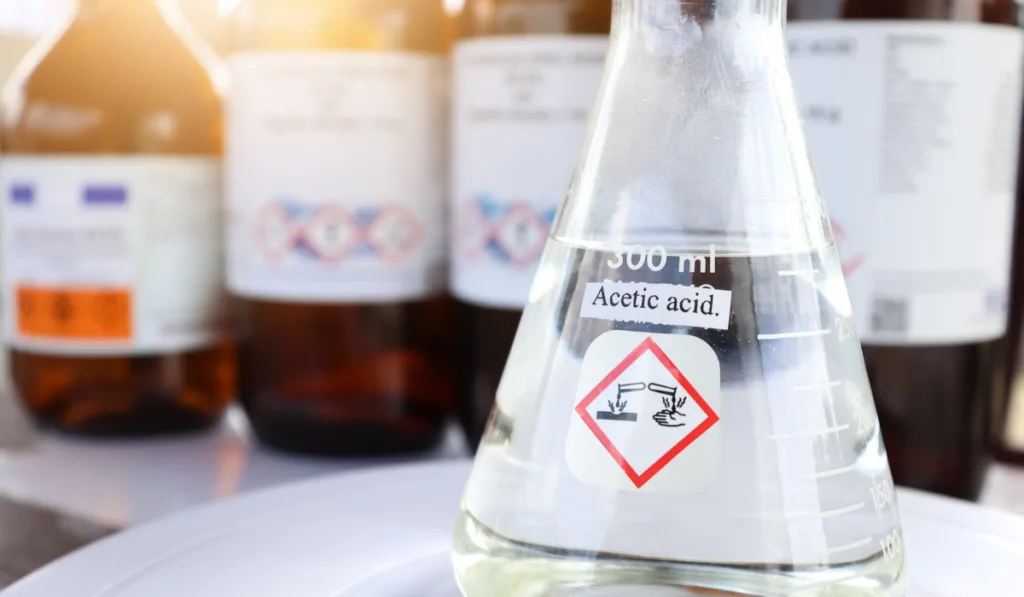
The acetic acid found in 5% vinegar destroys plant leaves. Young plants with undeveloped roots are the most affected.
Before spraying vinegar, make sure you protect the essential plants because vinegar kills plants. Cover the plants you want to keep before starting to spray.
The disadvantage to this method is the control of application. Use a fine sprayer nozzle and get close to the weed when possible to avoid negatively affecting other plants.
5. Vodka

For weeds that do well in areas with sunlight, mix an ounce of vodka with two cups of water and a few drops of soap solution. This will clear all the weeds.
Vodka works best as a weed killer when it is applied on a hot day to weeds in full sun. It is less effective for weeds in the shade.
6. Soap solution
Soap contains oil that is capable of breaking down waxy surfaces on weeds and makes them prone to desiccants. Adding a few drops of soap solution to vodka or vinegar sprays enables the solution to stay on the leaves.
Soap also makes the leaves appear shiny hence it is easy to differentiate what plants you have sprayed and which ones you have not.
7. Hot Water
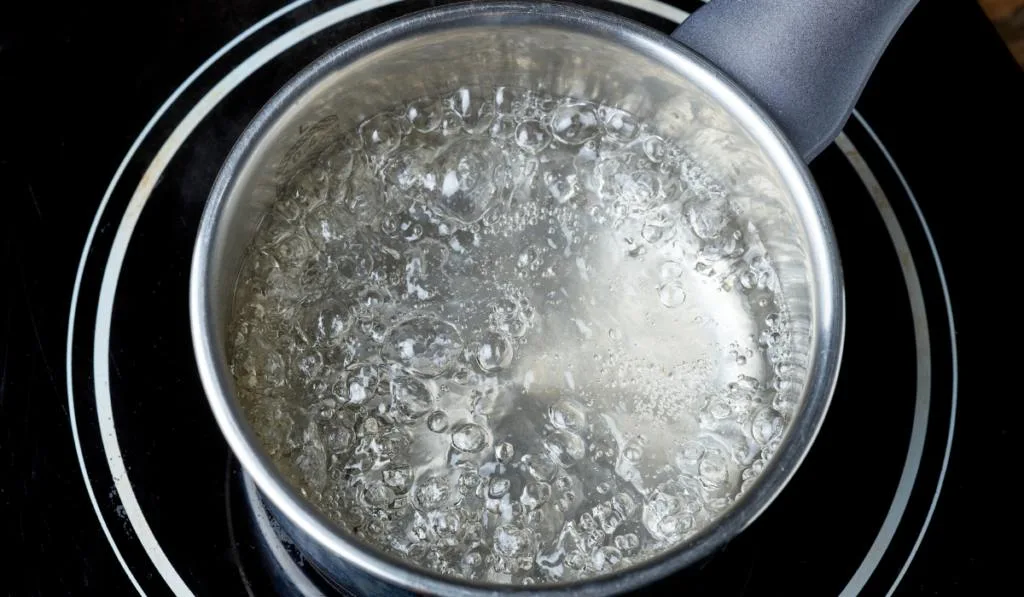
Due to its high temperature, boiling water burns up all the weeds they come across. This can work best for weeds growing on walkways or for large areas with weeds.
The extra labor (and potential danger) of boiling the water and then having to carry it out to the location with weeds makes this solution a little unwieldy. Of course, that’s relative to the size of the weedy area that needs to be treated.
Final Thoughts
Weeds have always posed a great challenge to gardeners. Most farmers will look for ways of destroying weeds and use of diesel fuel is one of them.
Though harmful to the surrounding environment, diesel fuel has proven to be effective for weed control if used carefully. Avoid contact with the desirable plants and keep away pets. When possible, use a more natural, less toxic weed killler.

Ella Starr
Friday 25th of June 2021
How interesting that you talk about how you can use propane for weeds. I just moved into an older home and I want to get the garden set up. I will find a good propane company in my area. https://www.thomastonoil.com/order-oil-order-service